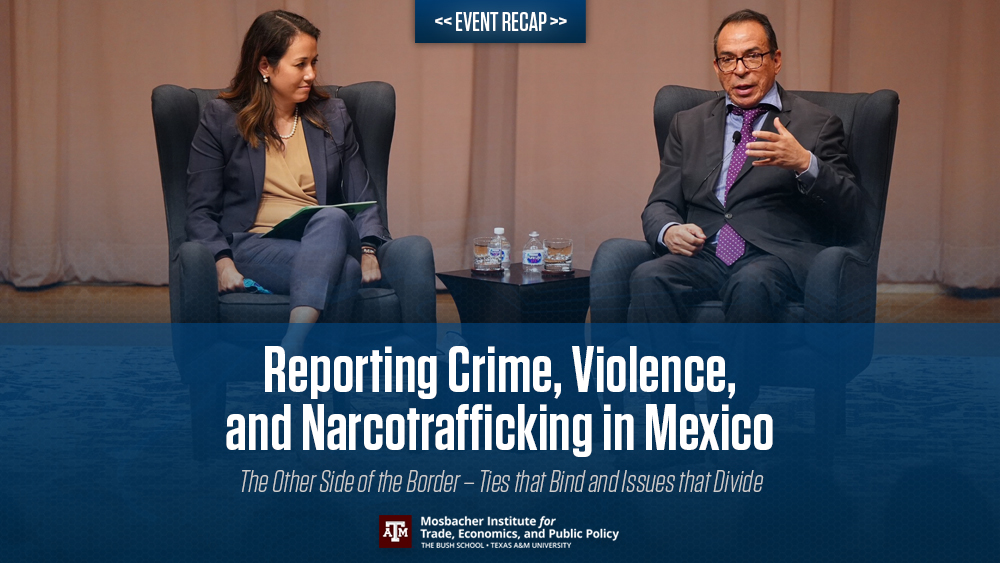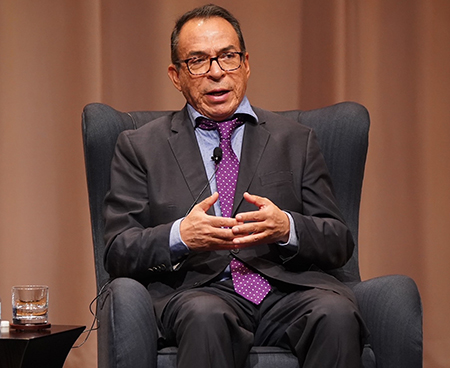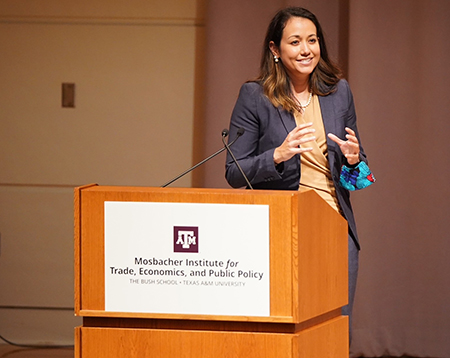
On November 10, 2021, the Mosbacher Institute’s Borders and Migration Program hosted Alfredo Corchado, a journalist and author with broad expertise covering US-Mexico relations, including the drug war, border security, and immigration. The event was part of The Other Side of the Border: Ties That Bind and Issues That Divide speaker series organized by Bush School of Government and Public Service Assistant Professor Aileen Teague, who also served as moderator. The series features practitioners working on the border and in Mexico and Latin America, who share their experience and expertise.

The talk covered a wide range of issues, including the security situation in Mexico, immigration issues at the southern US border, the war on drugs, and US policy on Mexico. Corchado expressed his concerns that the security situation in Mexico has been deteriorating in the past decade. He argued that there has been a lack of clear planning with regard to strengthening security institutions and reinforcing the rule of law in the country, which he attributes to a lack of continuity in national policies.
Corchado was also concerned that the deterioration of security in the country allowed for the expansion of cartel operations. He argued that not only has the number of operating cartels expanded exponentially but also they cover more geographical locations than before. Moreover, they have widened their scope beyond drug trafficking to include smuggling, human trafficking, and other illicit activities as well. This has had serious implications not only for policy makers but also for journalists, who face high levels of risk while working on the ground in Mexico. Similarly, this has had negative consequences on the security of Mexican women, who have been targets of cartel violence.

Regarding migration, Corchado stressed the importance of cooperation between the United States and its southern neighbors. He also highlighted that the recent massive flows of migration towards the United States were connected to US labor shortages, as many migrants already have job offers from US-based employers before arriving at the US border. He also talked about the need to change the negative narratives on Latin and Central American migrants, which has played on people’s fears of demographic change. He suggested that the Hispanic-American community has a strong responsibility to challenge these narratives and the politicians who propagate them by participating directly and more strongly in local politics. He also noted that anything that makes it more difficult for migrants to cross into the United States increases the profits of the cartels, who increase what they charge to ferry people through.
Despite his concerns, Corchado expressed optimism and hope in the ability of young Americans at the Bush School and beyond to bring about positive change in the Western Hemisphere. He concluded by highlighting how his interactions with Bush School students and listening to their stories and guiding purposes gave him hope that they can change many people’s minds in the country and the region. Earlier in the day, Corchado met with students and faculty and participated in a student-led discussion of his book Homelands: Four Friends, Two Countries, and the Fate of the Great Mexican-American Migration.
You can view Alfredo Corchado’s talk on the Bush School YouTube channel. If interested, you can also follow Corchado on Twitter @ajcorchado or look for his latest stories at The Dallas Morning News.

